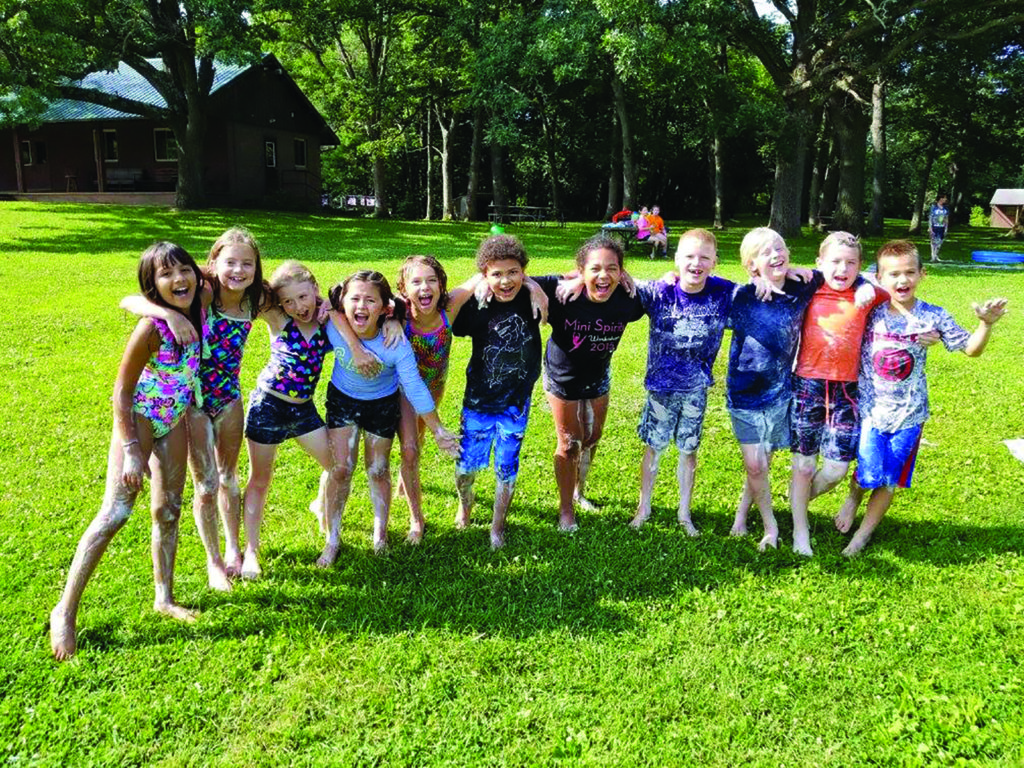
Feb 27, 2020
By Rev. Nicholas J. Kersten
Director of Education and History
My Christian experience has been deeply impacted by Camp Wakonda, the SDB camp owned and operated by the Milton, WI, church. I was loved well there as a little person at Day Camp and shown and told about the love of Jesus. As a camper at Wakonda, I was taught the faith and ultimately responded to a presentation of the Gospel there in the early 1990s. I built friendships which have lasted from those early days to now, growing deeper and more important to me as time goes on. As I grew in the faith, first as a high school student and then as a college student, I was privileged to be a part of the ministry staff at Wakonda. For one twenty-year stretch of my forty years of life to this point, I spent at least one week at Camp Wakonda every year. In many ways, my life in Christ is inestimably better because Camp Wakonda exists. I am one of the many followers of Jesus Christ whose current ministry was built on a foundation that was laid at an SDB camping ministry.
For this reason, given the theme of the Recorder this month, it’s important that I double back to the history of Camp Wakonda—in part because it’s a perfect partner to my other column this month, but also because it’s important to see the importance of all of our SDB camps, many of which have similar stories to Wakonda’s. The ministry that I and so many others have benefitted from over the years boils down to a testimony of God’s leading and human obedience embodied in faithful labor over the long haul.
Camp Wakonda was founded in the early 1950s, during the pastoral ministry of Elmo Fitz Randolph in Milton. Pastor Randy (as he was frequently known) became a strong advocate for starting a camp and led the church through a careful process of finding a site and establishing some of the first buildings that later became known as Camp Wakonda. Though some of the politics around these processes are somewhat obscured in his written account (Wakonda Memoirs: 1950-1966), Pastor Randy couldn’t hide in the narrative that he feared not everyone would support the creation of the camp inside his congregation, however impassioned he personally was about it. In the years since, several have related to me that at least one person in the church at that time thought of the purchase of the camp property for $3700 in the fall of 1950 as “Randy’s Folly.”
Yet through the diligent work of Pastor Randy and his wife Madeline and so many others in the Milton Church (seemingly all of the contributors in the 1950s and 1960s are named and credited in Wakonda Memoirs), over a period of years, the camp ministry flourished, not only spreading the fame of Jesus among SDB kids from the North Central Association, but also in the broader geographic area—with kids from the Milton Church’s “ministry neighborhood” trusting the work at camp to benefit their children and youth. Conference meetings and retreats have been held at the site. Visitors from around the world have benefitted from the creation and maintenance of the space as a devoted site to Kingdom work. Some folly! The wisdom of those in Milton who wanted to see the establishment of a camp is, at least to my way of thinking, totally vindicated.
Similar stories could be told throughout our Conference, from coast to coast, as we consider the many other great camps which have been established and obediently and faithfully run by our churches and associations. Now, nearly a century from when the first impulse of camping ministry sprang up among our people, camping ministries have reached a crossroads. Amid societal change and technological disruption, it has never been more important or necessary to separate people from their towns and cities and their devices so that they can experience the God of Creation in the midst of his beautiful handiwork. Likewise, longer and intensive retreat and camp ministries force people to drop their masks and deal honestly with one another. There remains good work for us in our camping ministries around the country.
Pastor Randy closes his Wakonda Memoirs with a quote from Shakespeare that I have long enjoyed: “…what’s past is prologue.” May the next chapter of our camping ministries be blessed by God for His glory and for the increase and advance of His kingdom.


